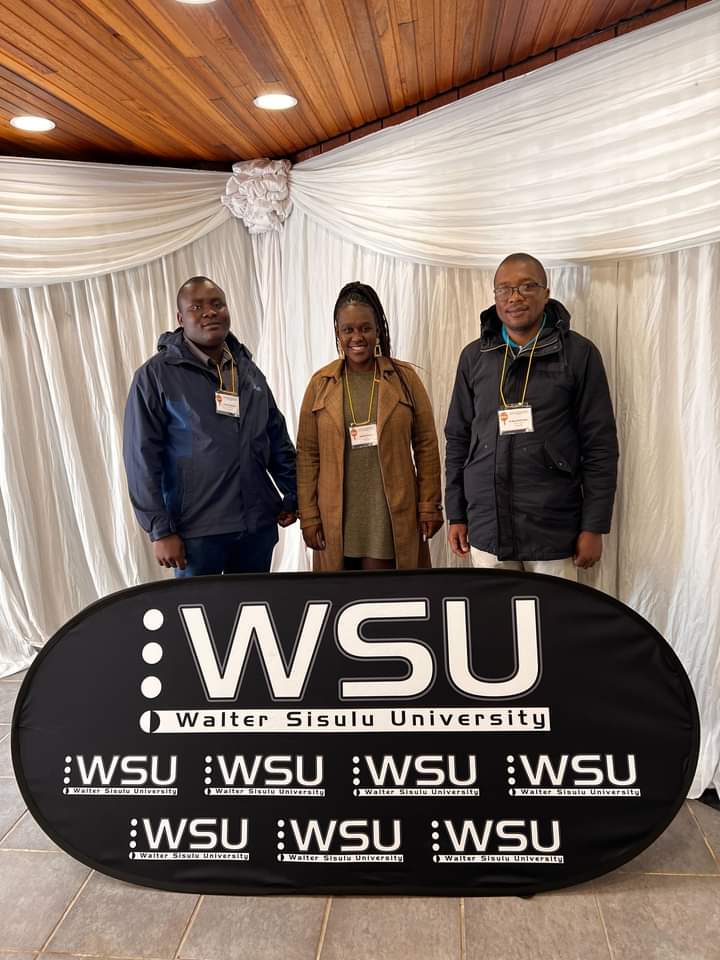Three Digital Humanities researchers from the South African Centre for Digital Language Resources (SADiLaR) attended the 2023 Southern African Linguistics and Applied Linguistics Society (SALALS) Conference, hosted by Walter Sisulu University on its Mthatha Campus from 3 to 6 July 2023.
SADiLaR’s Andiswa Bukula, Respect Mlambo and Dr Muzi Matfunjwa each presented a paper on their research at the annual conference, which had ‘Standardisations, descriptions, and delimitations of Southern African languages: past, present and future’ as its theme.
In a call for papers, published on SALALS’s website, the society’s secretary Nina Brink explains the significance of this year’s conference theme: “African languages on our continent have played second fiddle to the former colonial languages of English, French and others, often being reduced to written forms with sometimes questionable and controversial orthographies. These written forms have led to unending debates, raising questions of who, why and how they were arrived at. To date, issues pertaining to the intellectualisation of these languages abide, particularly in this age of digitalisation. The conference theme for this year therefore aims to shine a light on this and other related issues pertaining to Southern African languages.”
Digitisation as a tool to preserve indigenous languages
“The conference theme really spoke to my research,” says Andiswa Bukula, who presented a paper titled ‘Digitisation as a tool to preserve indigenous languages through the South African Centre for Digital Language Resources’.
“Through my overall research and research interests, I am always looking for ways in which I can introduce new and computational ways to develop isiXhosa, which speaks to the future of research,” she explains. “For instance, with my digitisation project, I am looking to digitise a few isiXhosa novels and dramas from various institutions, and thus introduce to them computational tools that can be used post digitisation. Tools like Voyant Tools, an open-source, web-based application for performing text analysis which also supports scholarly reading and interpretation of texts or corpus, can be used once these materials are digitised.”
Bukula is pleased that her presentation was so well received. “I received many questions during the Q&A, following my presentation. Participants were excited to hear about the possibilities that are presented by digitisation and how easy one can be part of the digitisation process, depending on what one is trying to digitise.”
Speaking to the core of African languages
Bukula thoroughly enjoyed the conference. “The conference was a big success and the quality and diversity of the presentations was very impressive. I was very inspired by the keynote speakers, who spoke to the core and future of our African languages. It is unfortunate that there were a few speakers that did not make it to the conference for one reason or the other, as their topics were really intriguing – it would have been a great pleasure to sit through their presentations,” she adds.
According to Bukula, the conference also presented her with some networking opportunities which may have just given her the boost she needs to start her PhD. “Through my networking, I was motivated to engage with young researchers who have just completed their PhDs or who are in the process of completing it. I am truly energised to start and complete mine as there are many possibilities as to how one can contribute to the development of African languages,” she notes with excitement.
“I want to say a big ‘thank you’ to the conference organisers for arranging such a well-planned, well-executed conference in the very beautiful, yet cold, Mthatha. This was my first SALALS conference attendance, and it lived up to its standard. I’m looking forward to the next one.”
Written by: Birgirt Ottermann

